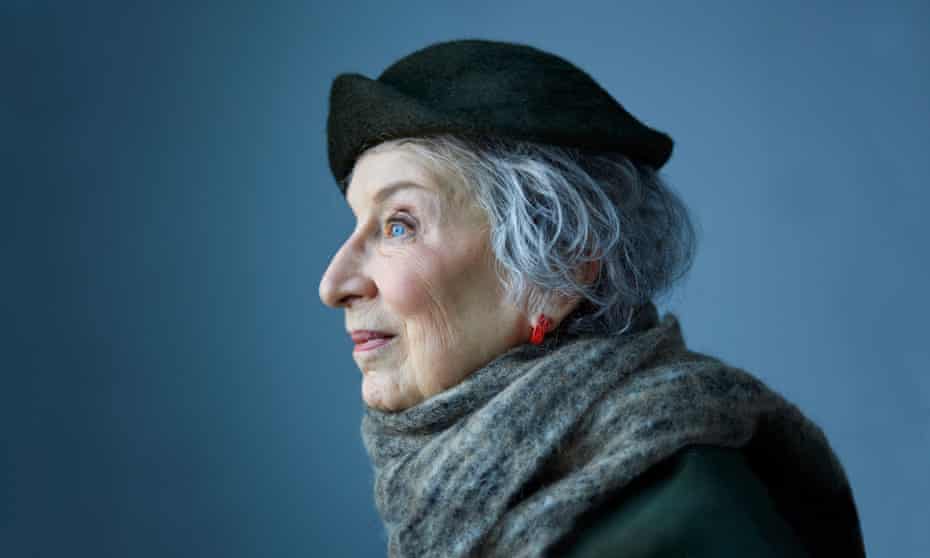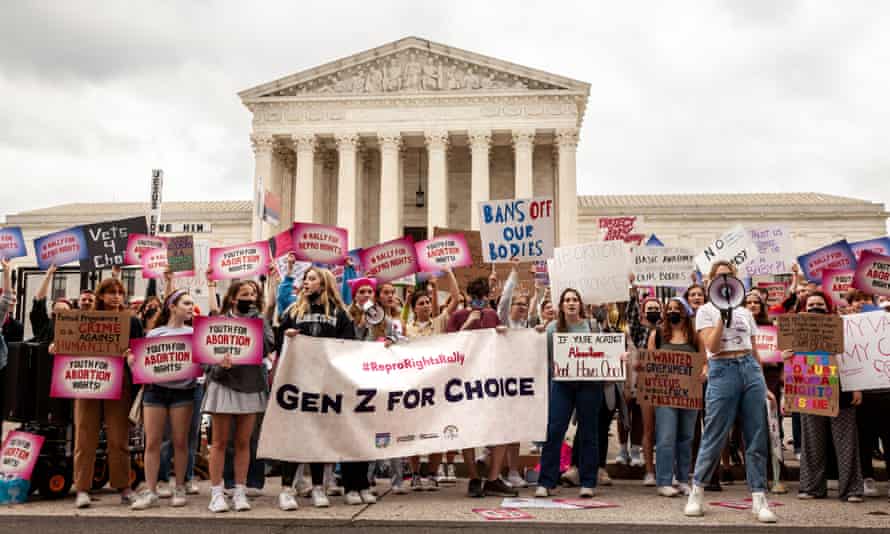
Corey Atad - Yesterday
ET Canada
© Photo: Jeremy Chan/Getty Images
The author of "The Handmaid's Tale" is standing up for choice.
Over the weekend, Canadian novelist Margaret Atwood penned an op-ed for the Guardian, responding to the leaked draft opinion indicating the U.S. Supreme Court may overturn Roe v. Wade.
The famous and controversial 1973 ruling enshrined a federal right to abortion access in America.
"Nobody likes abortion, even when safe and legal. It’s not what any woman would choose for a happy time on Saturday night," Atwood began. "But nobody likes women bleeding to death on the bathroom floor from illegal abortions either. What to do?"
Comparing the prospect of a ban on abortion to slavery, Atwood explained, "Women who cannot make their own decisions about whether or not to have babies are enslaved because the state claims ownership of their bodies and the right to dictate the use to which their bodies must be put."
"If the state is mandating enforced childbirth, why should it not pay for prenatal care, for the birth itself, for postnatal care, and – for babies who are not sold off to richer families – for the cost of bringing up the child?" she continued. "And if the state is very fond of babies, why not honour the women who have the most babies by respecting them and lifting them out of poverty? If women are providing a needed service to the state – albeit against their wills – surely they should be paid for their labour."
Atwood went on to discuss the importance of choice on the issue of abortion.
"We say that women 'give birth.' And mothers who have chosen to be mothers do give birth, and feel it as a gift. But if they have not chosen, birth is not a gift they give; it is an extortion from them against their wills," she wrote.
"No one is forcing women to have abortions. No one either should force them to undergo childbirth," Atwood added. "Enforce childbirth if you wish but at least call that enforcing by what it is. It is slavery: the claim to own and control another’s body, and to profit by that claim."
‘Enforced childbirth is slavery’: Margaret Atwood on the right to abortion
The US supreme court draft ruling on abortion is an assault on fundamental individual freedoms. The Handmaid’s Tale author reflects on the issues at stake

Nobody likes abortion, even when safe and legal. It’s not what any woman would choose for a happy time on Saturday night. But nobody likes women bleeding to death on the bathroom floor from illegal abortions either. What to do?
Perhaps a different way of approaching the question would be to ask: What kind of country do you want to live in? One in which every individual is free to make decisions concerning his or her health and body, or one in which half the population is free and the other half is enslaved?
Women who cannot make their own decisions about whether or not to have babies are enslaved because the state claims ownership of their bodies and the right to dictate the use to which their bodies must be put. The only similar circumstance for men is conscription into an army. In both cases there is risk to the individual’s life, but an army conscript is at least provided with food, clothing, and lodging. Even criminals in prisons have a right to those things. If the state is mandating enforced childbirth, why should it not pay for prenatal care, for the birth itself, for postnatal care, and – for babies who are not sold off to richer families – for the cost of bringing up the child?
And if the state is very fond of babies, why not honour the women who have the most babies by respecting them and lifting them out of poverty? If women are providing a needed service to the state – albeit against their wills – surely they should be paid for their labour. If the goal is more babies, I am sure many women would oblige if properly recompensed. Otherwise, they are inclined to follow the natural law: placental mammals will abort in the face of resource scarcity.
 Demonstrators protest against the draft abortion ruling outside the US supreme court in Washington. Photograph: Allison Bailey/NurPhoto/REX/Shutterstock
Demonstrators protest against the draft abortion ruling outside the US supreme court in Washington. Photograph: Allison Bailey/NurPhoto/REX/ShutterstockBut I doubt that the state is willing to go so far as to provide the needed resources. Instead, it just wants to reinforce the usual cheap trick: force women to have babies, and then make them pay. And pay. And pay. As I said, slavery.
If one chooses to have a baby, that is of course a different matter. The baby is a gift, given by life itself. But to be a gift a thing must be freely given and freely received. A gift can also be rejected. A gift that cannot be rejected is not a gift, but a symptom of tyranny.
We say that women “give birth”. And mothers who have chosen to be mothers do give birth, and feel it as a gift. But if they have not chosen, birth is not a gift they give; it is an extortion from them against their wills.
No one is forcing women to have abortions. No one either should force them to undergo childbirth. Enforce childbirth if you wish but at least call that enforcing by what it is. It is slavery: the claim to own and control another’s body, and to profit by that claim.
This is an edited extract from Burning Questions by Margaret Atwood, published by Chatto & Windus.
No comments:
Post a Comment